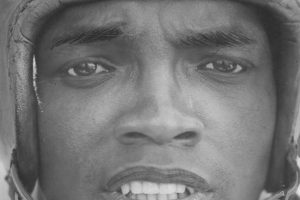Wally Triplett, the first Black draftee to play in the NFL, and a letter that changed everything

During Black History Month, with the series 28 Black stories in 28 days, USA TODAY Sports examines the issues, challenges and opportunities Black athletes and sports officials face after the nation’s reckoning on race in 2020.
The letter came to the Philadelphia address of a lavish estate in a white suburban neighborhood where Wally Triplett lived in the coach house with his parents. Where his dad was a mailman and his mother was a domestic helper for that house full of wealthy white people.
The letter came to Triplett, who had forged remarkable success on his high school football field. The University of Miami had heard about him and, assuming he was white, seeing that address, sent off a letter to that estate.
Wallace Triplett, We would be honored to offer you a scholarship to play football at Miami.
For a moment in time, Triplett experienced what it must feel like to not be judged by the color of his skin. But then, he realized. This must be some mistake. It was 1945 and Miami was a segregated university. Triplett wrote a letter back.
"Just so you know, I am a Negro."
The next writing he received from Miami was one rescinding his scholarship offer. Uninviting him to play football. A letter making it clear he was not welcome there.
It was a letter Triplett should have torn up and thrown into the trash. Instead, he held on to that letter. Not just for the next week or the next year or the next decade. He held on to that letter for the rest of his life.
'It was fuel to the fire'
That rejection, some say, is what pushed Triplett onward in a time when it would have been easier to sit back and accept what fate the powerful people dealt him.
"When Miami retracted that scholarship, he kept that letter. The letter was such a wound to him, a big scar, a big turning point," said Camille Tucker, a Hollywood writer, director and producer who is working on a film about Triplett. "That letter was fuel to the fire."
Triplett held on to that letter to be reminded of what people said he couldn't do, his sister Nancy Triplett told Tucker and filmmaker and author Craig Detweiler, who is also working on the film.
"He said, 'This is what happened to me and it’s not going to happen again. I'm going to transcend anything they ever thought. I'm going to go beyond,'" Tucker said. "That rejection did not stop him from so many firsts."
Source: Read Full Article

